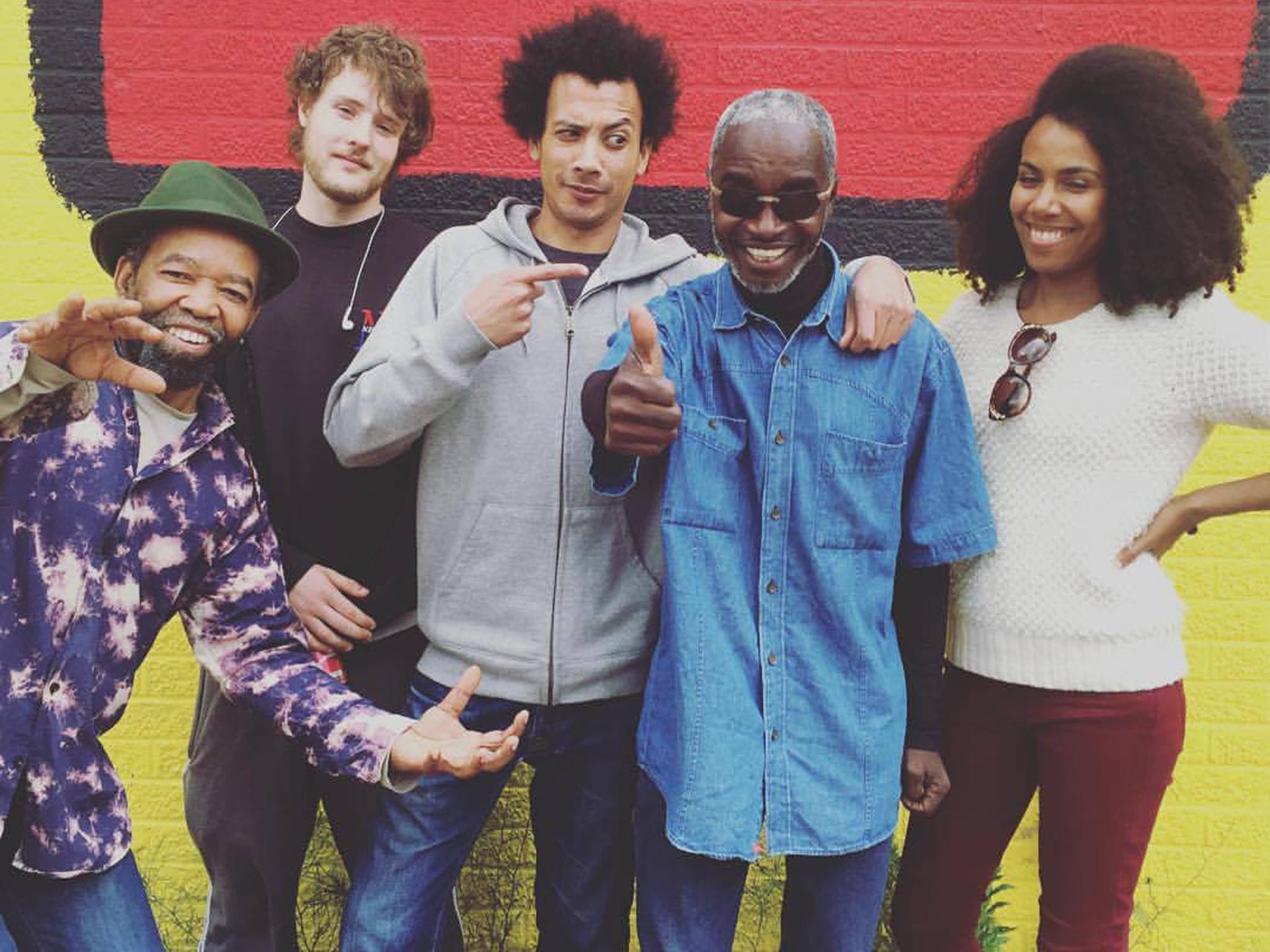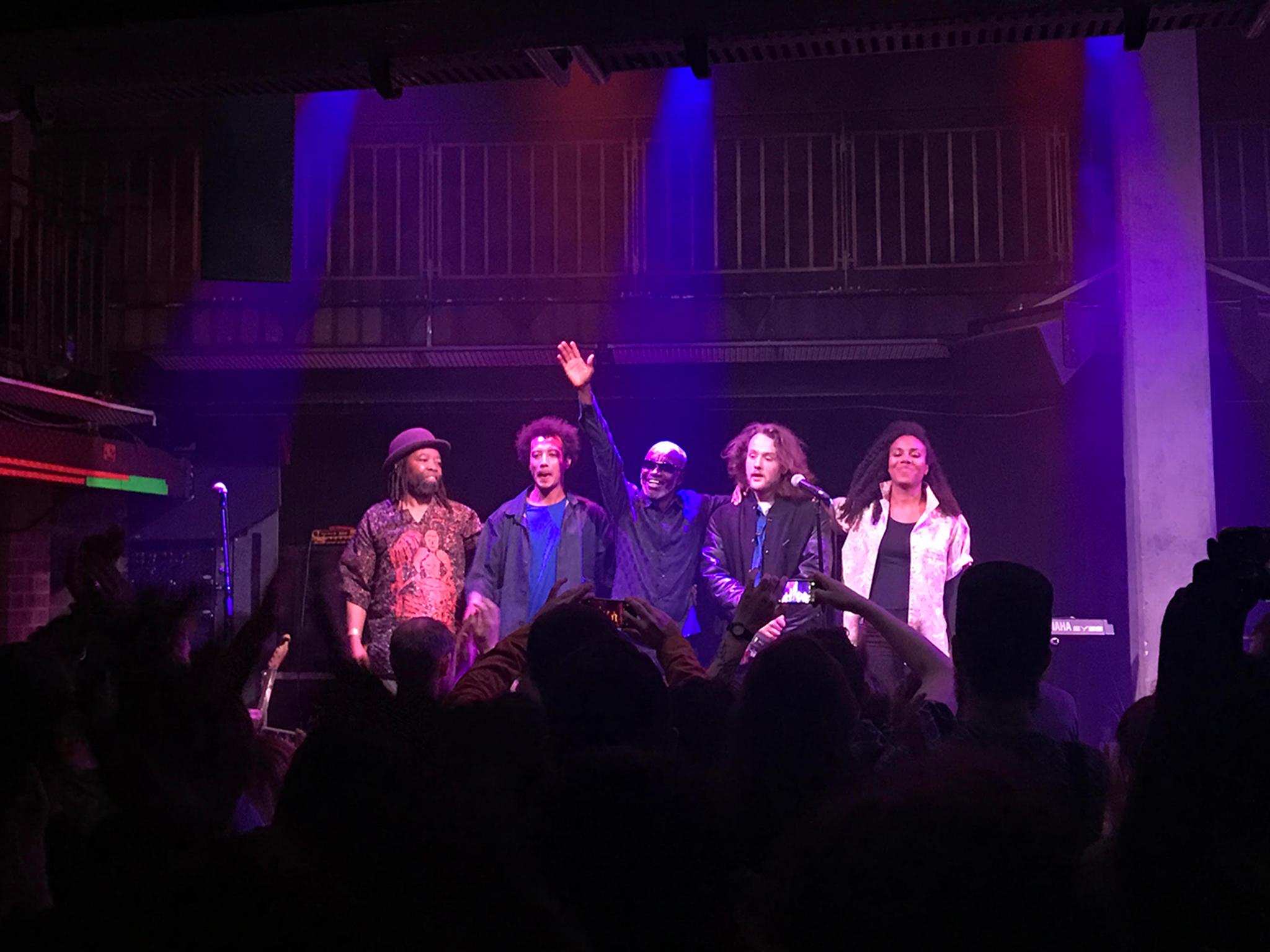Ata Kak at the Jazz Cafe, London gig review: Ghanaian dance-rap artist leaves crowd elated with eccentric tunes
The musician's album was discovered in a market in Ghana in 2002 and released in 2014, and he's still relishing his 15 minutes of fame

Your support helps us to tell the story
From reproductive rights to climate change to Big Tech, The Independent is on the ground when the story is developing. Whether it's investigating the financials of Elon Musk's pro-Trump PAC or producing our latest documentary, 'The A Word', which shines a light on the American women fighting for reproductive rights, we know how important it is to parse out the facts from the messaging.
At such a critical moment in US history, we need reporters on the ground. Your donation allows us to keep sending journalists to speak to both sides of the story.
The Independent is trusted by Americans across the entire political spectrum. And unlike many other quality news outlets, we choose not to lock Americans out of our reporting and analysis with paywalls. We believe quality journalism should be available to everyone, paid for by those who can afford it.
Your support makes all the difference.Ata Kak performs his infectious dance-rap to the crowd at the Jazz Cafe in Camden like there's no tomorrow, because the Ghanaian musician probably knows that his fame is the sort that is fleeting.
Imagine self-recording an album of seven repetitive, lower than lo-fi dance-rap songs on a cassette in Ontario in the mid-Nineties, to be sought out by an obscure record collector more than a decade later. That man, Brian Shimkovitz, found Ata Kak's album in a market on Ghana's Cape Ghost in 2002 and had searched for its maker for years. The journey took him from Ghana, to Germany and Canada, where he finally pinned down the elusive musician. He released the album, Obaa Sima, with Ata Kak's permission in 2014.
It's easy to see why he was hooked. Most songs follow the formula of a simple a drum roll followed by repetitive synth loops over which Ata Kak raps, sometimes almost with the speed of Busta Rhymes. It's influences span dancehall, reggae, Ghanaian highlife and hip-hop. His unpolished voice is almost childlike on the sped-up recording. He “owhs” like Michael Jackson. It's joyous, it's bizarre and it's catchy as hell.
Think of this as a music nerd’s novelty record, the sound snob’s Macarena. But Ata Kak doesn't have the dead-behind-the-eyes look of a used-up, one-hit-wonder pop star gripping onto fame. He's riding the wave of stardom that has seen him perform at festivals including London's Field Day and is relishing every second. “We're just having fun!” he declares on stage as he shuffles to the music.
Listening to the record, it's hard to see how Ata Kak's music will translate in front of an audience. Part of Obaa Sima’s charm is the musician's air of mystery and the graininess of the sound. How could it work on stage? With the help of a slightly awkward-looking but tight backing group, who at times have faces like they're supporting their embarrassing dad, Ata Kak effortlessly brings the frenetic happiness that makes his album great to the London crowd like a seasoned star.

The experience is head-scratching in a wonderful sort of way. The crowd happily bops along to the music as Ata Kak speeds through his repetitive lyrics, and it's unclear how he's being received until the songs end and they erupt into rapturous applause and cheering.
The more melodic songs like “Daa Nyinaa” and “Adagya” prompt them to sing along – although it’s safe to assume the majority don't speak Ghanaian and have no idea what they're actually saying – while less distinguishable tracks like “Moma Yendodo” and “Medofo” fall a little flat.
The song the audience is here for, though, is the album’s title track of his album. This is one of those brilliant musical flukes, where the elements aren't so dissimilar to an artist's other songs but gel together in a way that makes it an hypnotic earworm.
"I love you! I love you!" he shouts back at the crowd when they're at their most enthusiastic.
The show lasts only around an hour, there's no encore because they're aren't any more songs to perform, and it's unlikely many will know who Ata Kak is in a decade. But tonight, no one – from the singer himself to the elated people dancing and singing “Obaa Sima” at the train station outside the venue after the show – seem to care.
Join our commenting forum
Join thought-provoking conversations, follow other Independent readers and see their replies
Comments